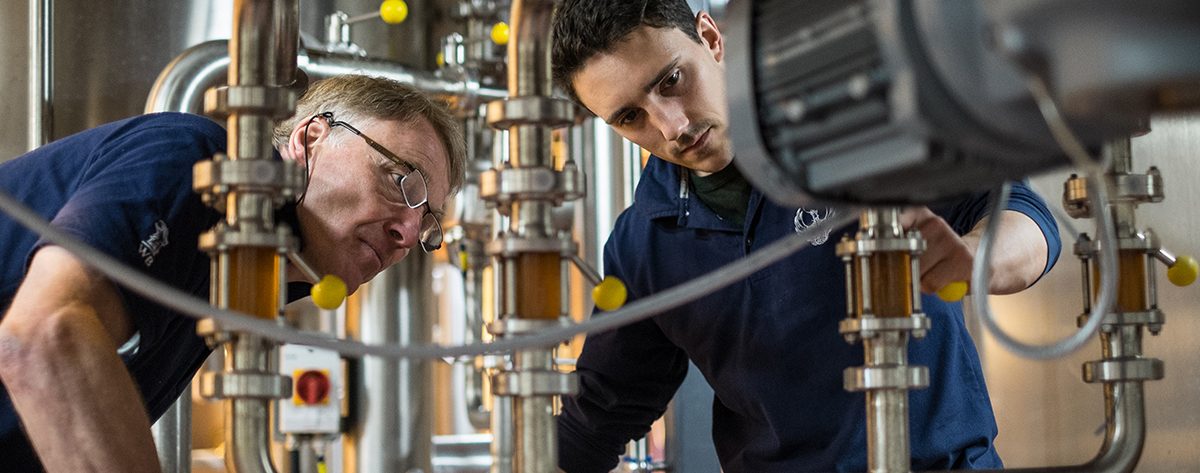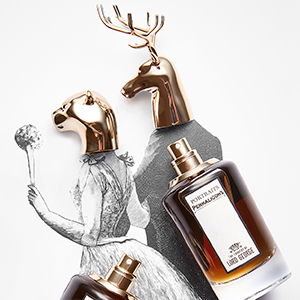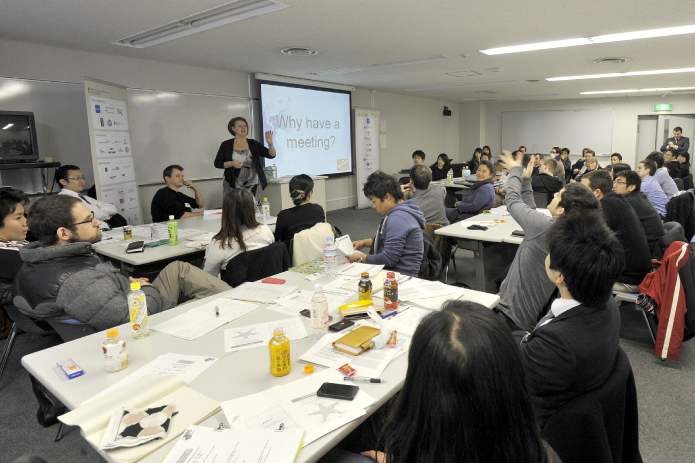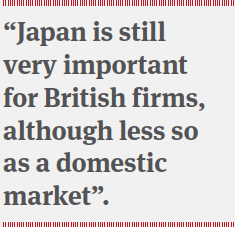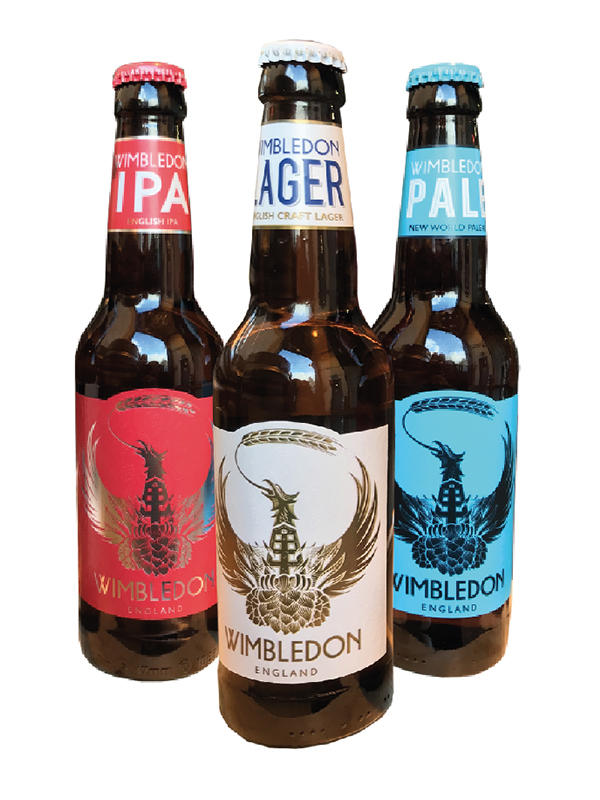 On January 2, 1889, a fire broke out in the tallest building in Wimbledon. The five-storey tower, built by William Quartermaine, was home to the Wimbledon Brewery, and its destruction brought an end to a business that was started in 1832 by William Cook.
On January 2, 1889, a fire broke out in the tallest building in Wimbledon. The five-storey tower, built by William Quartermaine, was home to the Wimbledon Brewery, and its destruction brought an end to a business that was started in 1832 by William Cook.
Today, the rich brewing heritage of the Wimbledon area—as well as the firm that once stood in Wimbledon High Street where the old fire station can still be found—is being guarded and advanced by Mark Gordon and his team, which includes 50-year industry veteran Derek Prentice as master brewer.
Gordon, who has a strong connection and affinity with Japan stemming from the 23 years he spent working for Sumitomo Mitsui Banking Corporation Europe Limited in London, re-established the Wimbledon Brewery in 2014. His ambition is to brew internationally renowned, beautifully crafted English beer using the best English traditions and ingredients. In that he has succeeded—Wimbledon has received many international honours, including the top prizes in cask and ale categories at this year’s International Brewing Awards.
Now, Gordon is preparing to enter the Japanese market, and ACUMEN caught up with him ahead of the British Business Awards (BBA)—of which Wimbledon Brewery was a Gold sponsor—to find out more about the plans and the challenges.
Eyeing Japan
“When I left the bank to set up the brewery five years ago, I always targeted Japan as my first export market,” Gordon said. “One reason for that is obviously my own affinity with Japan and all things Japanese, but also—looking at the brand and the way Wimbledon and Brand GB are recog-nised in Japan—there is real enthusiasm for
craftsmanship here”.
Gordon was in Tokyo on 5–8 November for a first round of meetings with various potential partners and other stakeholders about a 2020 launch. So far, things look promising, he said.
“The idea is we launch in May of next year alongside three tennis championships—possibly at the embassy to give it a bit of fanfare—and then see where it takes us.
“We’re also having conversations about potentially opening a bar in Tokyo. We think that there’s an opportunity there as well. We feel there’s actually nothing quite like what we have in mind in the city at the moment—which is unusual, because you can get anything you want in Tokyo. That would help with the brand and also be a sort of standalone British business”.
Gordon knows that getting attention and securing shelf space in Japan won’t be easy. “It’s a very crowded market, and access to that market is controlled by the big Japanese brewers,” he said.
“Especially in Japan, where the contracts are quite strong, people are not going to deviate from that supply contract. So, you’re looking for independents, and that’s what we’ll do. It is very hard to be independent and prosper. BrewDog have done very well. They’ve had huge access to funding. We don’t have that advantage, so, we just have to work on strength of brand and strength of product, really—which is why having our own bar will, I think, give us something as a focal point and we can build out from there”.
Changing market
One of the challenges Wimbledon has seen in the UK is that consumers are spoilt for choice. “If you go back 15 years, there were only six breweries in London. Now there are over 100,” Gordon said. “Ten years ago, if somebody said to me, ‘Well, what do you drink?’ I would’ve said ‘I drink Guinness and I drink bitter’. Now, most people—me included—like a pale ale, like an IPA. It’s more a smorgasbord than hanging your hat on a particular brand or a particular style. The range is phenomenal”.
With the pub market saturated, Gordon has turned more towards hotels, restaurants and specific retailers, such as Marks & Spencer and Waitrose & Partners, to build a high-end experience around his beers.
“Wimbledon, as a brand, is certainly premium. It’s certainly not edgy. When it comes to British brewing and craft brewing in London, things are very edgy, very bohemian. We are not that style of brewery. So, if you know if you want the more craft-orientated flavours, then that’s not us”.
For UK beers to find success on the global market, Gordon thinks they must do something that the country’s brewers have not done particularly well to date. Citing Budweiser and Corona, US and Mexican brands with wide international appeal, he said: “The Brits, we don’t have that; and it’s the flavour profiles that have been the problem. Ninety percent of the world’s beer drinkers want a lager, but we’ve no real lager tradition—till now, with Wimbledon lager”.
That could bode well for introducing Wimbledon to the Japanese palate, which trends towards lagers. Gordon sees Wimbledon Gold, a lagered golden Helles-style beer overlaid with a blend of classic and contemporary German hop varieties, as an ideal starting point.
“The flagship beer for us will be our lager, which is a multi-award-winning, dry brew that is slightly different to what is on offer in the Japanese market at the moment. It has been universally enjoyed so far. We need to get it in front of a lot more people to know whether that’s the case across the country, but that’s the one we’ll back”.

Sharing a toast with Gordon at the BBA on 8 November.
Storytellers
Finding the right style of beer isn’t the only key to successful market entry. A number of food and beverage firms have told ACUMEN that the Japanese love of story is an important inroad when building a brand here, and Gordon confirmed that.
“People are more interested in the provenance. Who made it? What’s the story? Where does it come from? No one knows who’s brewing Asahi or Budweiser. They should care about that sort of stuff”.
Fortunately, many Japanese consumers do care about those things, and Wimbledon has a compelling story, encapsulated in its logo that combines the five-storey tower, a barley sheaf, and the phoenix, that fiery bird of myth that represents rebirth.
And the story stretches much farther back into Wimbledon’s long brewing history, which extends to the Middle Ages, when Merton Priory was brewing on the same site where Gordon’s brewery now stands.
The human element is also important, and Gordon’s comment about consumers not knowing who is making the beer they are drinking reflects a shift being seen globally—one that is driving the craft beer movement. More and more, consumers want to feel a personal connection with the artisans who are making what they see as, well, art.
It’s also easy to put a face to Wimbledon’s beers. Head Brewer Derek Prentice has proven his skills in producing British beer through his work with some of London’s most famous breweries, including:
- Fuller Smith & Turner’s in Chiswick
- Young’s in Wandsworth since 1831
- Truman’s in East London since 1666
A Diploma Master Brewer and fellow of the Institute of Brewing and Distilling, Prentice was awarded the British Guild of Beer Writers Brewer of the Year in 2013 and received the Society of Independent Brewers Lifetime Achievement Award in 2014.
This combination of compelling story and proven craftsmanship give Wimbledon a strong foundation for appealing to Japanese beer lovers. And there is even potential appeal for tourism. The tours and courses in beer-making on offer at the brewery could entice Japanese enthusiasts to visit the UK to live the story.
Building inroads
Japan is already showing an increased interest in the UK market, although, “interestingly, there aren’t many British beers on the shelf in Japan. You don’t see them. I think that may change,” he noted.
Big Japanese brewers have been making acquisitions in the UK. In one of the biggest deals of the year, Asahi Group Holdings Ltd. purchased Fuller Smith & Turner’s brewing business for £250mn in January.
“Fuller’s is a mid-sized family brewery in London. Their main brand in the UK—and probably the most exportable, certainly in terms of its name—is London Pride. Its flavour profile is more traditional English, so I’m not sure how far that’s going to go. But I’m sure Asahi are working on British brands that will work in Japan,” Gordon said.
“And Kirin bought a small craft brewery called Fourpure, I think mainly for the UK market to help get in their other brands. So there is this interest from the big Japanese brewers. And I think that will help us if we start to see a few more British brands coming through and studying the market”.
The Fourpure acquisition was made in July 2018 through Lion Pty Limited, the Australian subsidiary of Kirin Holdings Company, Limited.
Rebirth
With interest pouring in both directions, the future looks bright for UK beer in Japan and for Wimbledon’s market entry. The reason the original brewery burned down, Gordon explained, is that it was winter, and the horse-drawn fire engine couldn’t get up the hill. That was a challenge that could not be overcome, but fortune should favour Wimbledon this time around.
“It would be a real triumph for me if that long held ambition of exporting the beer to Japan comes to fruition,” Gordon said, as he mentioned the wonderful opportunity presented by being a sponsor of this year’s BBA. “To be here now, post Rugby World Cup, is wonderful—especially as Japan has shown itself to be an amazing host through its running of the World Cup, which it has been universally praised for. It is a good time to arrive. And then they get the opportunity to show off again next year with the Olympics—another sporting connection which will help our brands. I hope we can do something and make a success of it here”.
